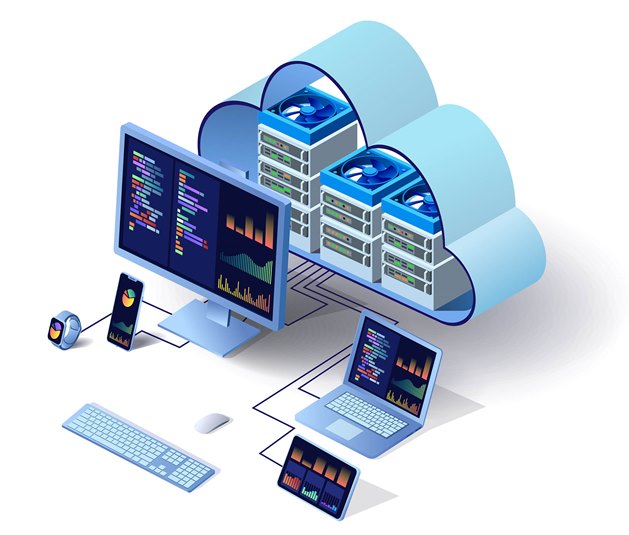Is Cloud Safe For Nonprofits?, More organizations move their data and systems to the cloud, the question is this a safe option for nonprofits?
Posted Wednesday, March 01, 2023
Is the Cloud Safe for Nonprofits Data? What Should Nonprofits Consider Before Pushing Critical Data to the Cloud?
As technology has advanced and more and more organizations move their data and systems to the cloud, the question of whether this is a safe option for nonprofits has become increasingly important. Nonprofits have specific needs and concerns regarding their data and security, and understanding these is key to making informed decisions about using the cloud.
First, it's important to understand what is meant by the "cloud." The cloud refers to a network of remote servers hosted on the internet and accessed from anywhere with an internet connection. Rather than managing and storing data on in-house servers, nonprofits can store and access their data in the cloud. This allows them to save on hardware and maintenance costs and have more flexible and scalable solutions.
While the cloud can bring many benefits to nonprofits, there are also valid concerns about their data security in this environment. The cloud can be vulnerable to cyber attacks, data breaches, and other security threats. It's also important to consider that organizations using the cloud entrust their data to a third-party service provider and rely on their security measures and policies to protect their information.
So, Is The Cloud Safe For Nonprofits?
is the cloud safe for nonprofits? The answer is not a simple yes or no. It depends on a number of factors, including the specific cloud provider being used, the security measures in place, and the type of data being stored. However, there are steps that nonprofits can take to ensure that their data is as secure as possible in the cloud.
Before pushing data to the cloud, nonprofits should thoroughly evaluate their data needs and the risks involved. This should include a consideration of the types of data that will be stored in the cloud and the level of security required for each type of data. For example, donors' financial information or personal data may need to be protected with a higher level of security than general information about events or programs.
Once the risks have been assessed, nonprofits should then research and compare the different cloud service providers and their security measures. It's important to look for a provider that has a solid track record of security and that is compliant with industry standards such as the Payment Card Industry Data Security Standard (PCI DSS) or the Health Insurance Portability and Accountability Act (HIPAA). It's also a good idea to review the provider's security policies, including their data backup and disaster recovery processes, as well as the types of encryption they use to protect data.
Cloud Safe Providers For Nonprofits
When using the cloud, nonprofits should also take steps to protect their data themselves. This can include using strong and unique passwords, enabling multi-factor authentication, and monitoring their accounts for suspicious activity. It's also a good idea to educate staff and volunteers on data security and best practices for using the cloud.
Another essential factor to consider is the level of control nonprofits have over their data in the cloud. This includes being able to access and manage their data, as well as having the ability to download or remove their data if necessary. It's important to understand the terms of the contract with the cloud provider and the process for transferring data in and out of the cloud.
What are the most secure cloud data providers for nonprofits?
Several cloud service providers are known for their security and are well-suited for nonprofits. These include:
Cloud Providers
- Amazon Web Services (AWS) - AWS is a leader in cloud computing and offers a range of security features, including encryption, data backup and recovery, and multi-factor authentication. AWS also complies with various security standards, such as the PCI DSS and HIPAA.
- Microsoft Azure - Microsoft Azure is a cloud computing platform that provides various security features, including encryption, data backup and recovery, and identity and access management. Azure is also compliant with industry standards such as the PCI DSS.
- Google Cloud Platform (GCP) - GCP offers a range of security features, including encryption, data backup and recovery, and multi-factor authentication. GCP also complies with industry standards such as the PCI DSS and HIPAA.
- IBM Cloud - IBM Cloud provides a variety of security features, including encryption, data backup and recovery, and identity and access management. IBM Cloud also complies with industry standards such as the PCI DSS and HIPAA.
- Box - Box is a cloud-based content management and collaboration platform that provides a range of security features, including encryption, data backup and recovery, and identity and access management. Box is also compliant with industry standards such as the PCI DSS.
It's important to note that while these providers are known for their security, each nonprofit's needs are unique, and it's crucial to thoroughly evaluate their specific requirements and the security measures offered by each provider before making a decision. Additionally, nonprofits should also take steps to protect their data, such as using strong and unique passwords and regularly monitoring their accounts for suspicious activity.
Is The Cloud Safe For Nonprofits?, Conclusion
In conclusion, the cloud can be a safe and secure option for nonprofits, but it's important to carefully consider the risks involved and take steps to protect their data. This includes researching and comparing cloud service providers, implementing strong security measures, and regularly monitoring their accounts. By understanding their data needs and the risks involved, nonprofits can make informed decisions about using the cloud and ensure that their data is secure.
Get in Touch with Us
To learn more or discuss how our Team can fit your specific needs, please schedule a call.

